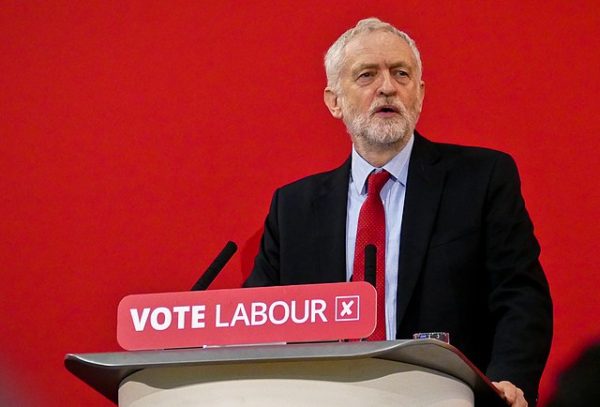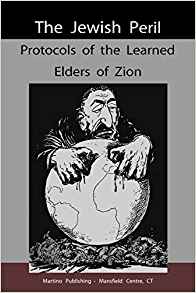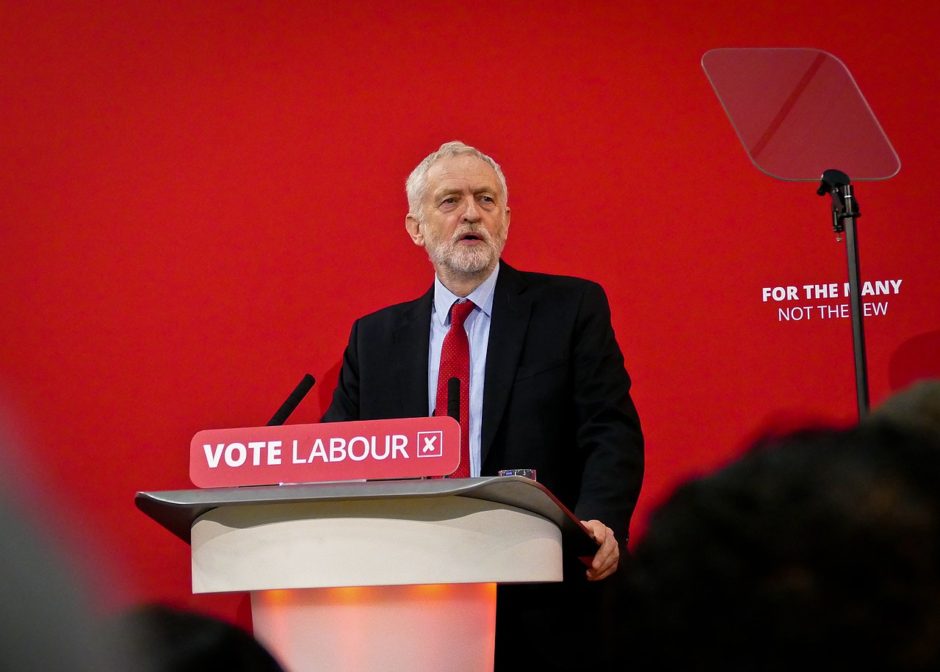Jeremy Corbyn, the leader of Britain’s Labor Party, is finally getting really serious about the scourge of antisemitism within its ranks.
Several days ago, while claiming that this volatile issue has been exaggerated by the media and by his opponents, he belatedly admitted that his left-of-center party has a “real problem” with antisemitism and that it must be properly addressed.
Corbyn made this admission shortly after 60 Labor parliamentarians of the Upper House bought a full page ad in The Guardian accusing him of “allowing antisemitism to grow in our party and presiding over the most shaming period in Labor’s history.”
Their point is well taken. Before Corbyn’s accession to power, there was no such problem in the party.

In trying to come to grips with it, Corbyn recently disclosed that Labor has created a page on its website about racism and antisemitism. As he wrote, “Hatred towards Jewish people is rising in many parts of the world. Our party is not immune from that poison — and we must drive it out from our movement.”
“We must face up to the unsettling truth that a small number of Labor members hold antisemitic views and a larger number don’t recognize antisemitic stereotypes and conspiracy theories,” he went on to write.
This is a refreshing change of attitude on Corbyn’s part.
In his nearly four years as party leader, Corbyn has demonstrably failed to deal with this issue in a manner befitting its gravity. Indeed, critics have accused him and his allies of minimizing or sidelining efforts to combat antisemitism on a systematic basis.
Last year, members of Britain’s Jewish community held a protest rally outside Parliament condemning the party’s tolerance of antisemitism since 2015. This past February, Luciana Berger, a Jewish parliamentarian, left the party after branding it “institutionally antisemitic.”

These accusations are not groundless.
Citing the party’s own figures, a major British newspaper recently reported that Labor has received 625 complaints of antisemitism by party members in the first six months of this year, yet only eight members have been expelled during this period.
Currently, the Equality and Human Rights Commission, a British government body, is investigating numerous cases of antisemitic hate speech in the party since Corbyn’s selection as its leader.
Whether Corbyn himself is an antisemite is debatable. But his pro-Arab and pro-Palestinian views, statements and actions have doubtless emboldened antisemites in the party. During his years as a Labor backbencher, he described Hamas and Hezbollah as “friends,” defended an antisemitic mural in London, and laid flowers on the graves of Palestinian terrorists who murdered Israeli athletes at the summer Olympic Games in Munich in 1972.
Having recognized that antisemitic sentiments infest the party, Corbyn has acknowledged that “the worst cases of antisemitism in our party have included Holocaust denial, crude Jewish-banker stereotypes, conspiracy theories blaming Israel for 9/11, or every war on the Rothschild family.”
He now apparently believes that members of the party who hold offensive views, including antisemitism, should be expelled expeditiously. In a meeting with his shadow cabinet, he promised to form a new panel of party officials with the power to expel such members immediately. He reportedly told his colleagues that he sought to “confront this poison” of antisemitism “and drive it out.”
According to the Guardian, the party’s leadership supports independent oversight of this process, as some MPs and Jewish community leaders have demanded.
The leaflet, in terms of its tone and substance, tackles tough issues.
In a reference to the Holocaust, it declares that “Holocaust denial and revisionism are profoundly antisemitic.” And it denounces The Protocols of the Elders of Zion as an “entirely fabricated” czarist Russian document that has been a fount of anti-Jewish conspiracy theories.

One of these theories deals with Jews and Israel. As the leaflet points out, “Today, some conspiracy theories substitute Israel or Zionists for Jews, presenting Israel as controlling the world’s media and finances. These theories ascribe to Israel influence on world events far beyond any objective analysis. Likewise, blaming Israel’s faults on its Jewish identity, or holding all Jews in (Britain) and elsewhere responsible for what Israel does is antisemitic.”
The leaflet also states that “Jewish people have the same right to self-determination as any other people.” And while criticism of Israeli policies are legitimate, it notes, “opposition to the Israeli government must never use antisemitic ideas, such as attributing its injustices to Jewish identity, demanding that Jews in Britain or elsewhere answer for its conduct, or comparing Israel to the Nazis.”
Corbyn also said his party is a political home for both Zionists and anti-Zionists: “Neither Zionism nor anti-Zionism is in itself racism.”
Corbyn’s new and much-needed approach to antisemitism has sharply divided the party. In a survey conducted by the Times of London, 48 percent of Labor members said he has mishandled this file, but 47 percent said the opposite.
It’s abundantly clear that the party has been splintered by this explosive issue, but Corbyn seems to be moving in the right direction to address it once and for all.
